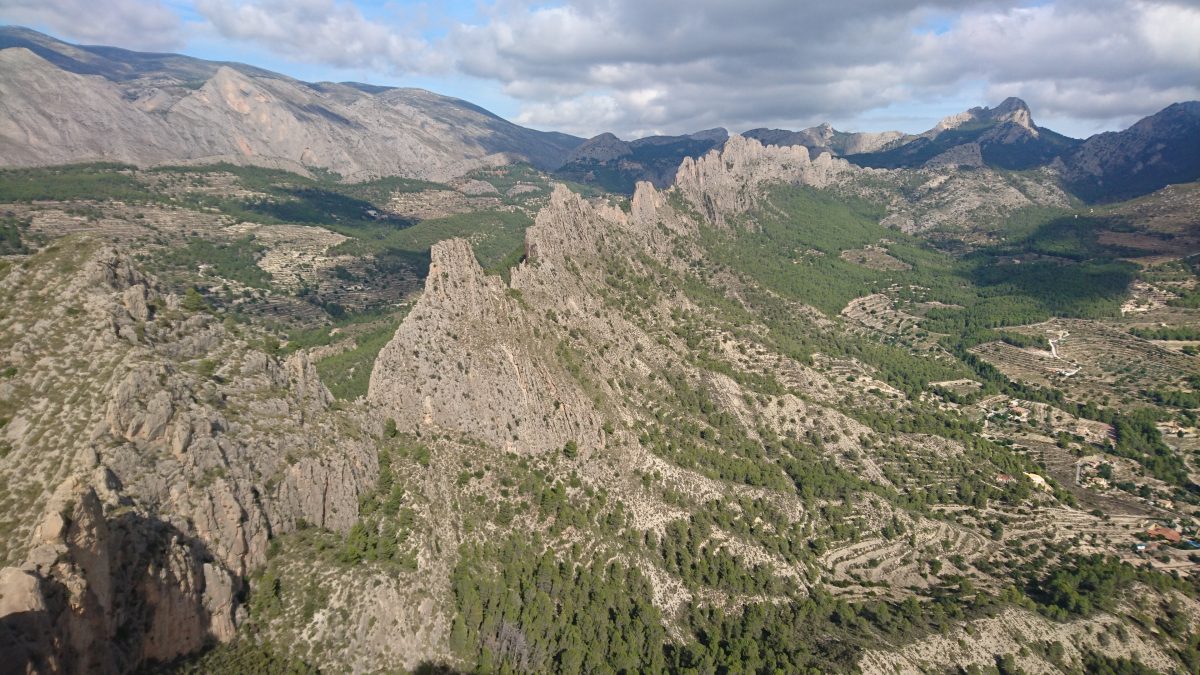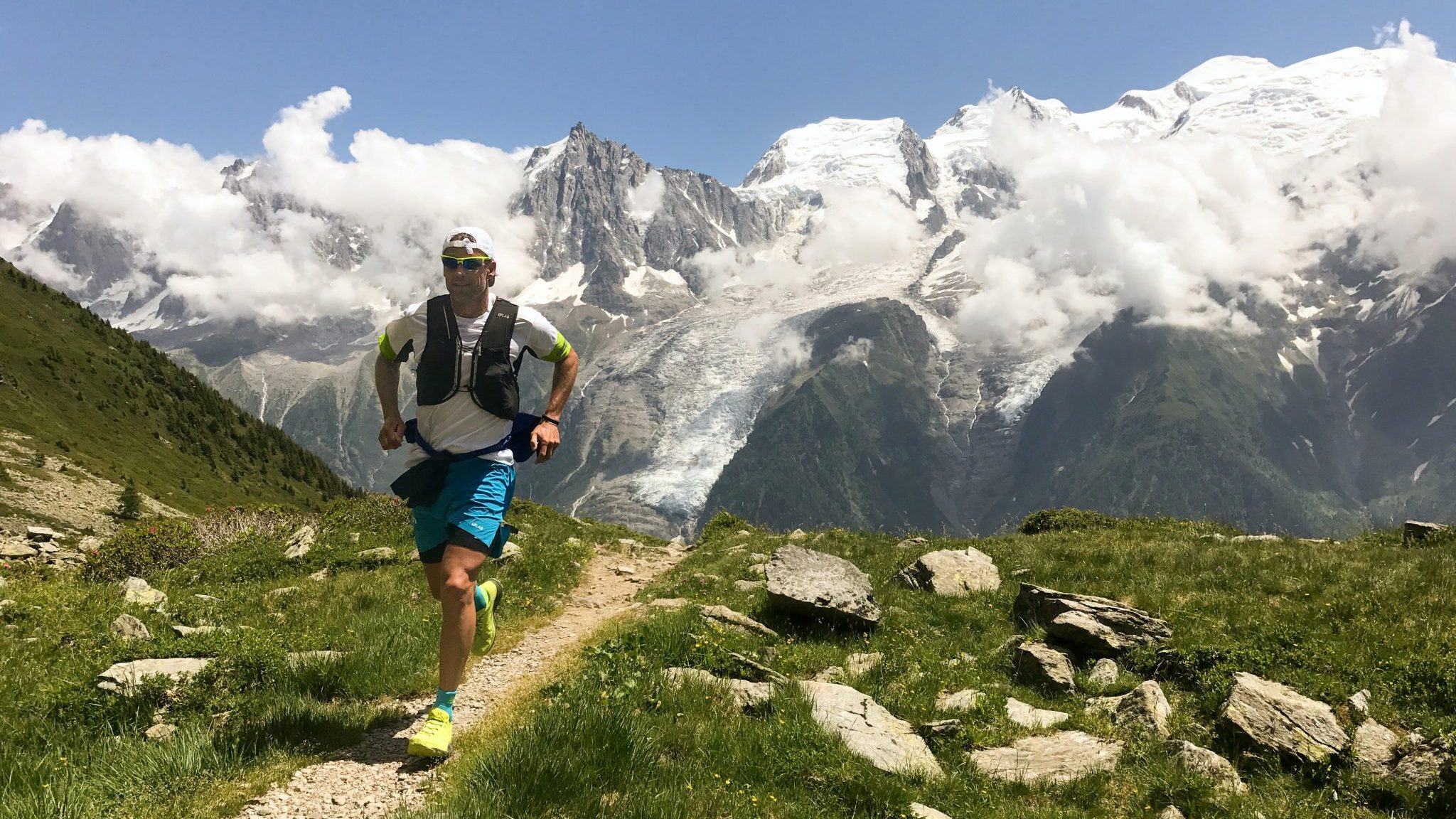
Longevity & Optimised Fat Metabolism
22/08/2022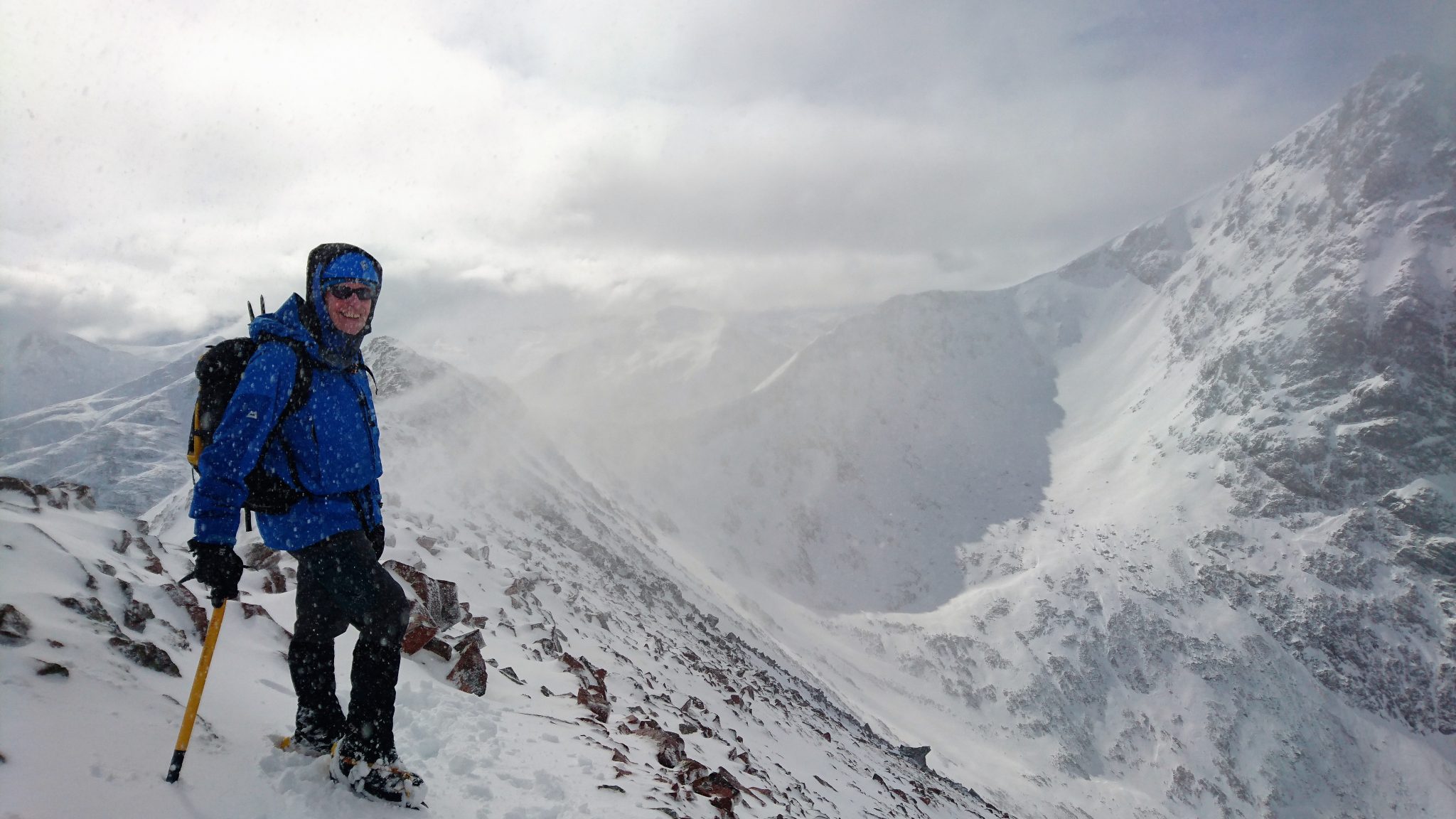
Mountain Weather
07/12/2022CLIMBING IN COSTA BLANCA
AUTHOR | STEVE HOLMES
The northern regions of Spain are famous for challenging world-class rock climbs, but further south, particularly in the Costa Blanca, there is a wealth of easier rock climbing and brilliant mountaineering. Some of these are incredibly narrow, long, and committing; think the Cuillin Ridge in shorts and shades! Synergy Guides have climbed in Spain for many years and explored the most popular regions, including the Picos de Europa, Catalunya, Andalucia and Costa Blanca. The latter, alongside the Picos, has spectacular mountaineering routes to compliment its traditional ‘roadside’ rock climbing and, with reliable weather, has all the attributes of a great holiday.
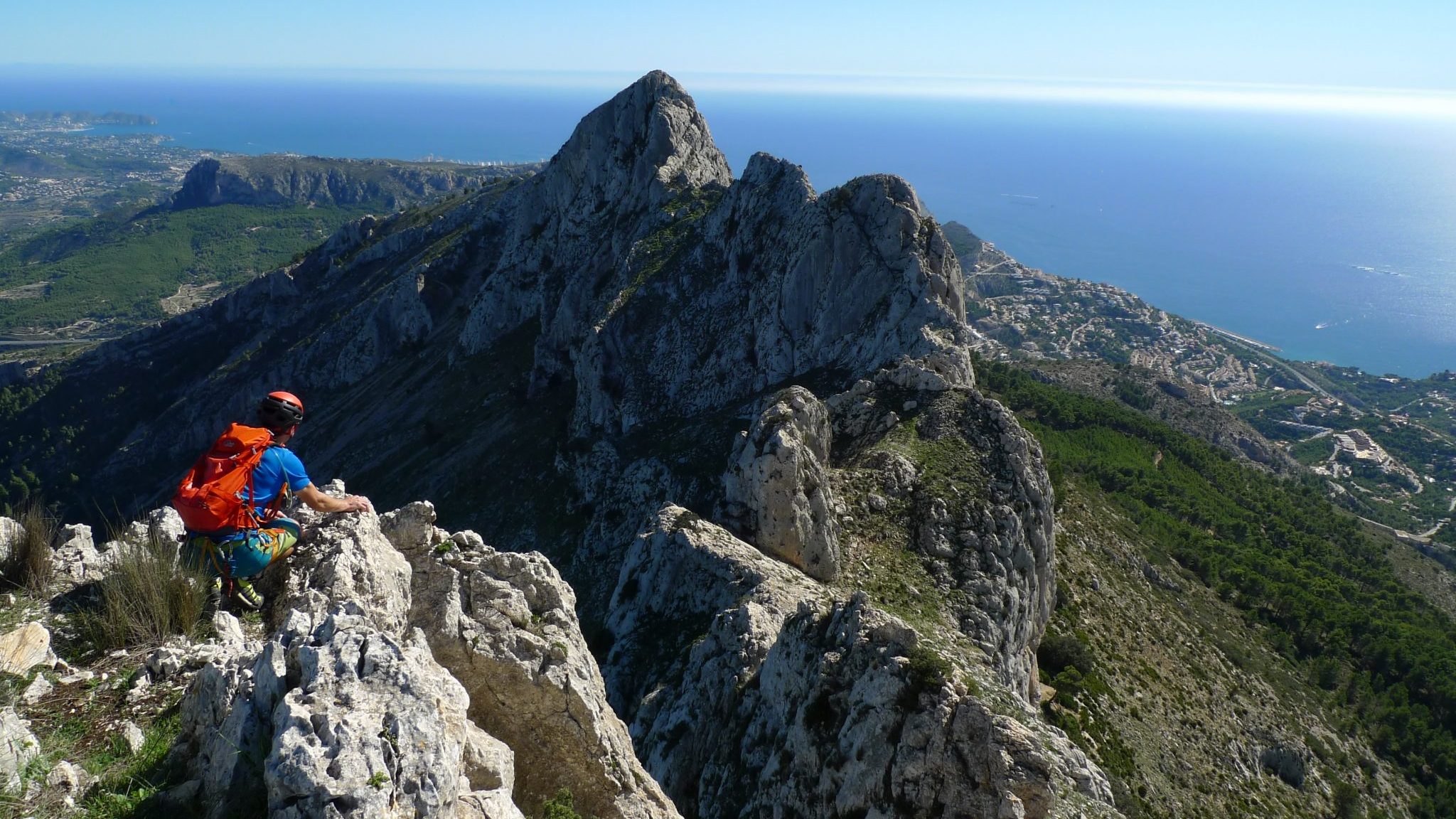
Flights & Transfers
Getting to Costa Blanca from the UK is relatively easy. Flights go daily to Alicante, the most popular airport in the region. From here transfer of around 1 hour gets you to Benidorm and Calpe, or you can hire a car for approximately £30 per day. If you are flying from Edinburgh, Easyjet should be your first port of call; Ryan Air & Jet2 are other options from airports in the UK. At the time of writing, you can purchase a return flight from Edinburgh for around £115 (+ baggage).
Transfers run regularly from Alicante and cost around £20 per person. A reliable website used previously is ‘Hoppa‘. When in the company of our guides, you do not need a vehicle. We will drive to and from each location during your time with us. However, if you want to sightsee on your days off, we recommend hiring a vehicle from Alicante airport. Most price comparison websites suggest a daily rate of around £30 per day. You should check the small print as some services require up to a 1000 Euro deposit on the collection; we recommend purchasing extra insurance as driving in Spain can be ‘exciting’.
Driving
Most people choose to fly as it is undoubtedly cheaper than driving. For extended stays of up to a month or more, it can be cheaper to travel to Spain utilising the Channel Tunnel from Folkstone or the Brittany Ferries Portsmouth and Plymouth service to northern Spain. The Channel Tunnel departs every hour or less and takes around 40 minutes to arrive in Calais. For a high-sided car, a return ticket costs around £250, whilst a return ferry to northern Spain costs around £700. The significant price difference represents the increased driving required to get to Costa Blanca by travelling through France. Note – most people fly!
Accommodation
Airbnb, Booking.com and all travel agents can provide accommodation to match most budgets. We recommend locating in or around Benidorm or Calpe, as this gives the best access to climbing and mountaineering. Benidorm is famous for its wild nightlife; we recommend staying on the outskirts for a better night’s sleep or slap bang on the beachside if you want to mix climbing with partying! Calpe also has its share of nightlife but is much quieter and more family oriented. Calpe is observed by the Penon de Ifach, a highlight rock climb in the Costa Blanca.
There are several campsites in the area, popular with ex-pats living in motorhomes and enjoying year-round sunshine. With the rise of Airbnb, it is possible to rent some excellent properties, some of which are cheaper than camping. It is worth a vigorous internet trawl to find the best deals; anyone unfamiliar with international travel might consider a travel agent who will arrange all the logistics of your holiday for a set fee.
Travel Insurance
Travel insurance should be purchased before departure. It is worth considering activity insurance to cover you in a climbing accident. Still, it also has all the benefits of general travel insurance, such as lost baggage and delayed flights. DogTag and the BMC have specific packages to cover adventurous activities.
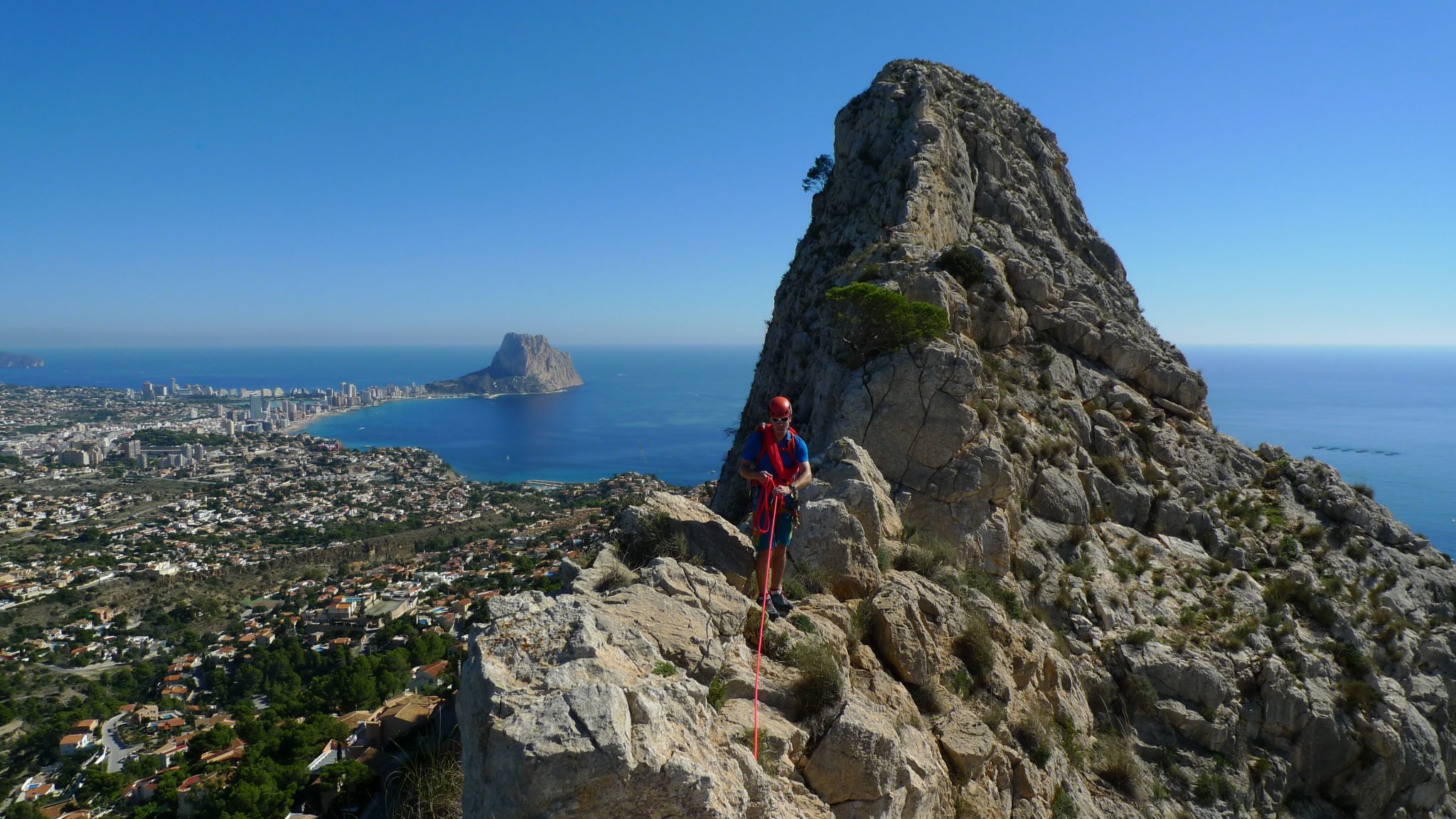
Kit
Specialist kit requirements are relatively low for climbing in the Costa Blanca, but below, we have picked items that may differ from your UK setup.
Approach shoes
Approach shoes try to marry the attributes of a dedicated rock climbing shoe with a trainer; they fit pretty snug but can be worn all day, including the approach and descent. A dedicated shoe with a sticky rubber outsole is ideal for mountaineering on dry Spanish limestone. There are many different styles and fit on offer; a good selection can be found here – https://rockrun.com/collections/approach-shoes.
Pack
Whilst climbing, your pack will contain the following:
- A lightweight, warm layer
- Superlite waterproof shell jacket
- Suncream
- Water and food
On approach, you will also need to fit a harness, climbing equipment such as a rope or carabiners, a helmet, gloves and other small personal items. We have found a 25l pack suits this scenario well, being light and less noticeable when empty; they also dont restrict your movement when the climbing gets steeper.
We have used Black Diamond Blitz packs for years, but most other dedicated scrambling acks will do the job well. If you buy new, consider the pack weighing less than 600g when empty.
Layers
It is essential to cover up your skin at the hottest time of the day; long sleeve cotton shirts are firm favourites being less fitted and boasting a collar to cover the neck while in the sun. Long-sleeve baselayers with rollable sleeves allow some form of temperature regulation. Very lightweight wind shells are also a great addition. Patagonia Houdini and the Arcteryx Squamish are light and do a great job on windier days.
Fluid
The Costa Blanca is known for its dry arid climate; streams and accessible drinking water are unavailable on most climbing routes. The capacity to carry extra fluid is crucial on hotter days; we recommend a 2l platypus-style bladder plus a 500ml bottle with an electrolyte drink.
Rock Shoes
Finding comfy dedicated rock climbing shoes is not easy, but if you aspire to climb more technical routes with us, we advise visiting a local climbing shop and trying a few pairs. Consider all-day comfort, the fact your feet will swell in the heat and whether you prefer lace-ups or velcro (velcro is better, in our opinion). If pure mountaineering routes are your focus, then a dedicated approach shoe described above will do the job.
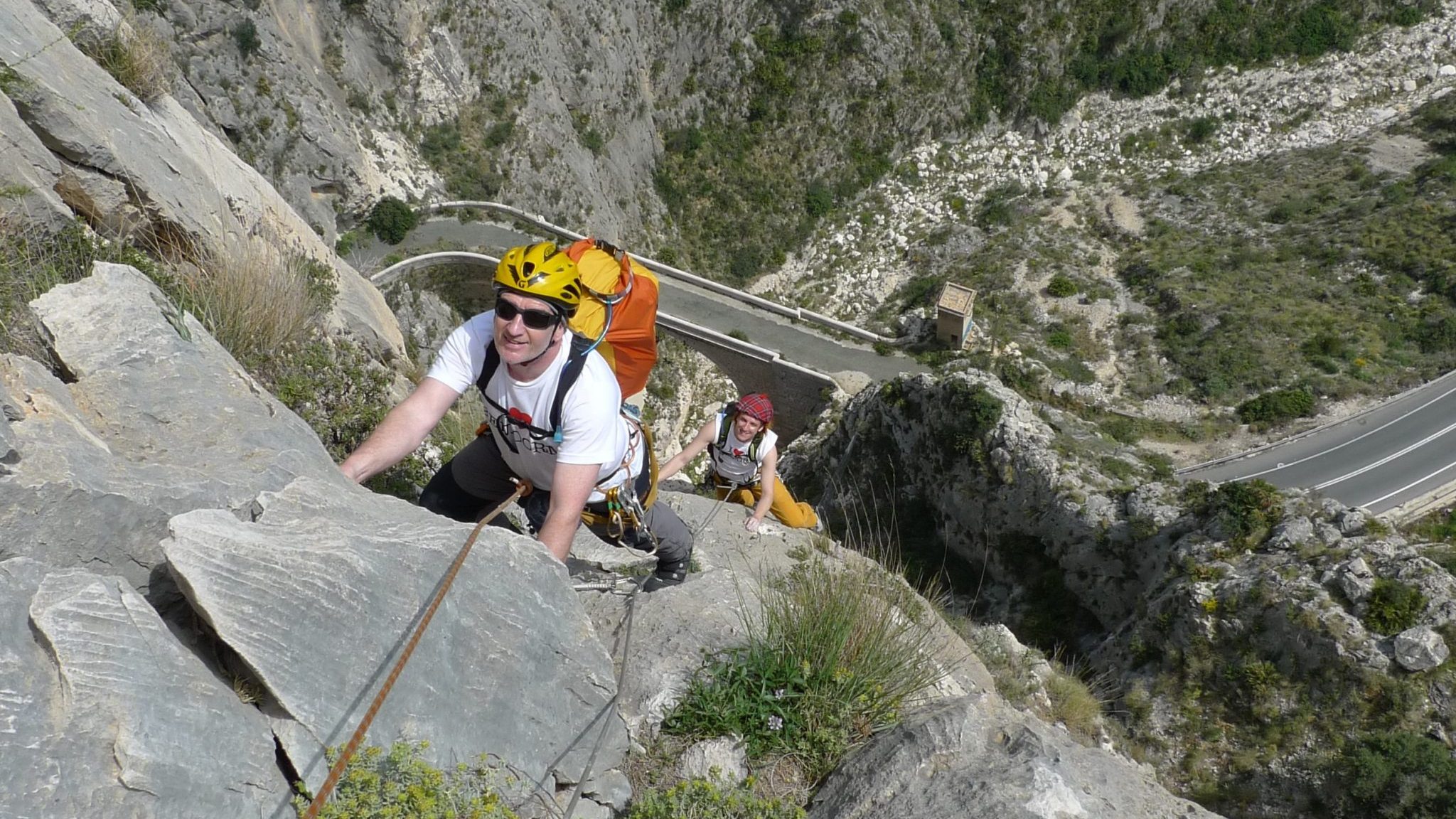
Guiding
The price for Costa Blanca Climbing starts at £320 per day for one person and £350 per day for two people. The price includes guiding only; all other expenses, such as travel and accommodation, are excluded. We require a minimum booking of three days, which we will spread throughout your stay.
For example, two people arrive for seven days’ holiday and book four days of guiding. The four days can be used anywhere within your holiday to allow for rest days. The total cost of climbing with us would be £1400. Accommodation, flights, and transfers are all additional costs you would need to consider.
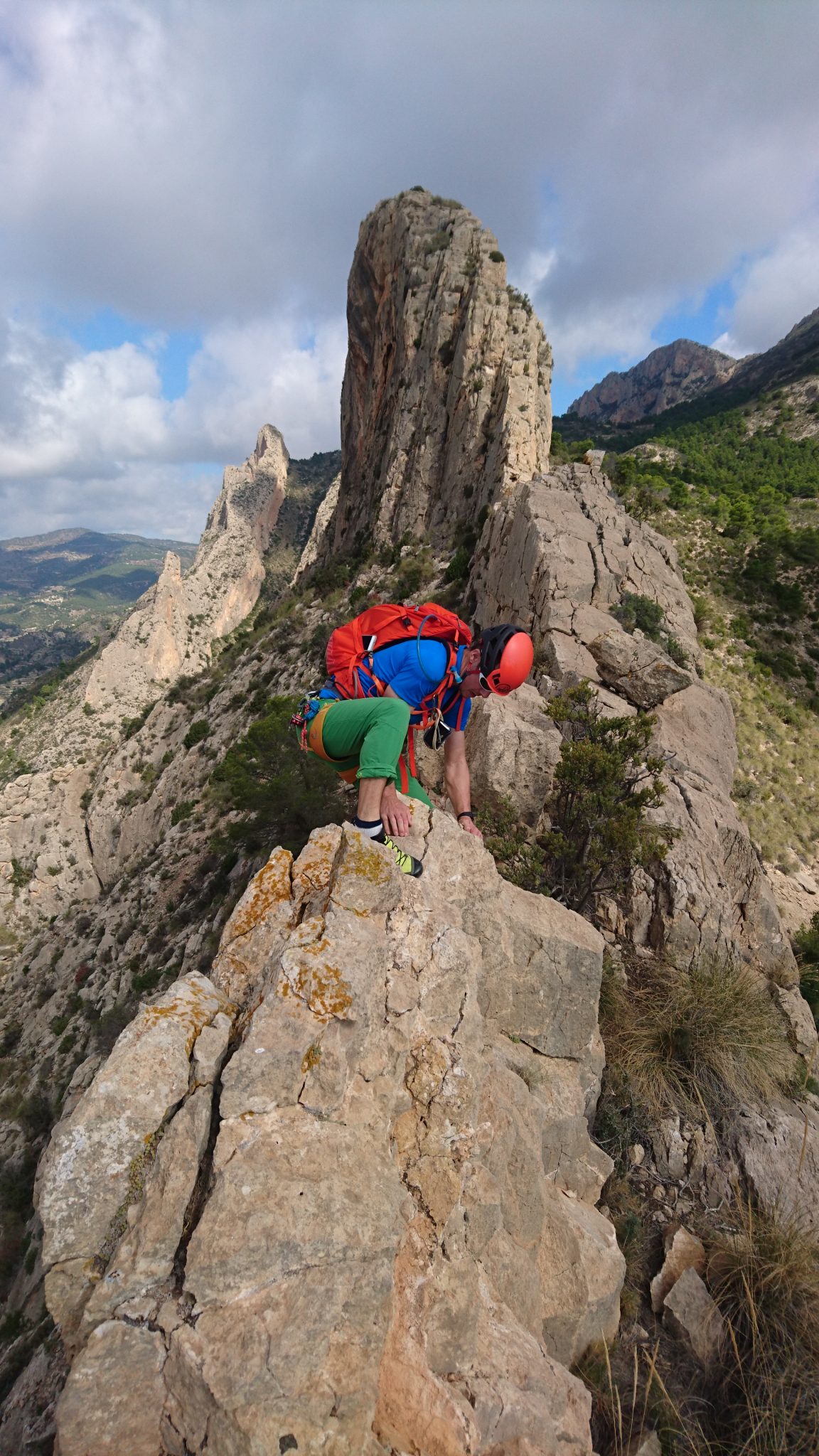
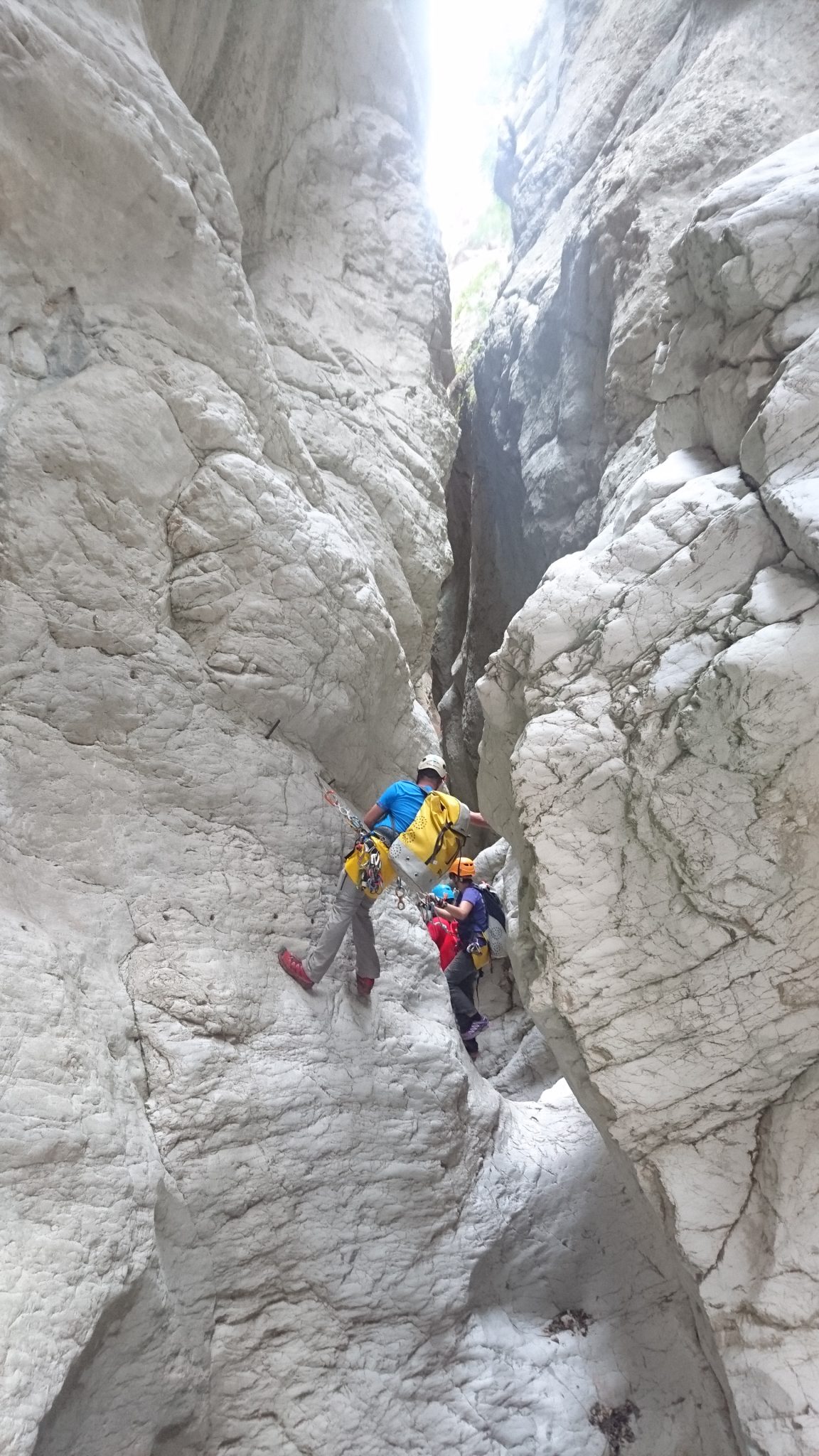
About the author
Steve Holmes owns Synergy Guides, he is a fully qualified Mountaineering Instructor and holds the WMCI (MIC) award. He spends most of the spring/summer on Ben Nevis and the Isle of Skye. You can read more about him here.



